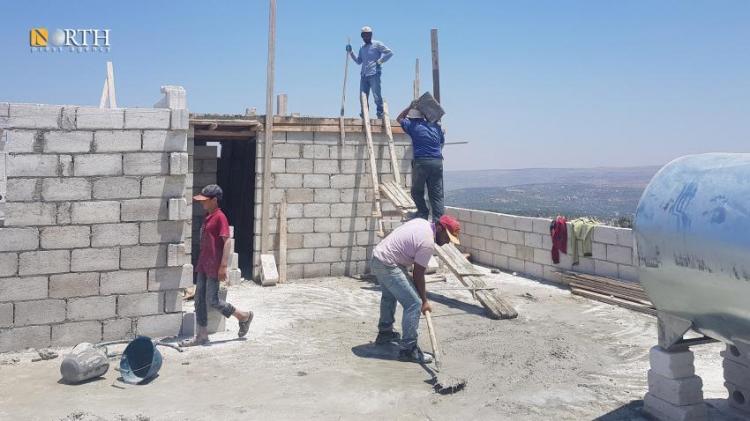IDLIB, Syria (North Press) – Workers in Idlib governorate, northwestern Syria, face difficult living conditions, as they get wages in SYP, whose value continues to deteriorate against that of foreign currencies.
The largest portion of the workers get low wages that hardly reach SYP 5,000 per day, equivalent to $2 USD.
“After I was displaced from Eastern Ghouta, I went back to work in my basic profession, which is installing stone and marble. However, I faced a problem, which is the low wages in this area. The matter prompted me to ask for my wages in foreign currency,” Hassan Sawadi, an IDP from the Damascus countryside, told North Press.
Omar al-Jassem, a carpenter from Idlib, told North Press, “I have not dealt in foreign currency until now. Before the rise in the dollar exchange rate, I was earning SYP 4,000 per day, and my living conditions were good.”
“After the deterioration of the value of the Syrian pound, the situation worsened considerably, and the five thousand Syrian pounds that I used to get are no longer sufficient to buy something compared to the prices in the markets…an increase of SYP 1,000 or 2,000 to my daily salary no longer does anything with what we are witnessing today from the great increase in prices,” he added.
Al-Jassem believes that dealing with the Turkish lira and adopting it in the markets temporarily is better, due to price manipulation by shop owners. Meanwhile, dealers and stakeholders should increase the wages of the workers, because the daily wage of the worker must be at least 25 Turkish Lira, or 8,000 SYP, to be able to live.
Walid Hajj Ali, an IDP from the town of Talamens in the southern countryside of Idlib, told North Press that he was forced to work hard after his displacement. Though he is a farmer by trade, he now works transporting building materials, digging, and other similar work. “It is heavy work for me, but I am obliged to work to meet my needs.”
He added that before its collapse, the Syrian pound was good, but now it is barely enough for bread and food because the wages did not change, like the value of the Syrian pound.
The unemployment rate in Idlib governorate is increasing, which in turn increases the poverty rate. “After the recent displacement from the countryside of Hama, Idlib, and Aleppo due to the military operations, the unemployment rate increased to 85% due to population density and the absence of economic and industrial projects in the area,” Muhammad Seid Suleiman, Minister of Local Administration in the Syrian Interim Government, said.

